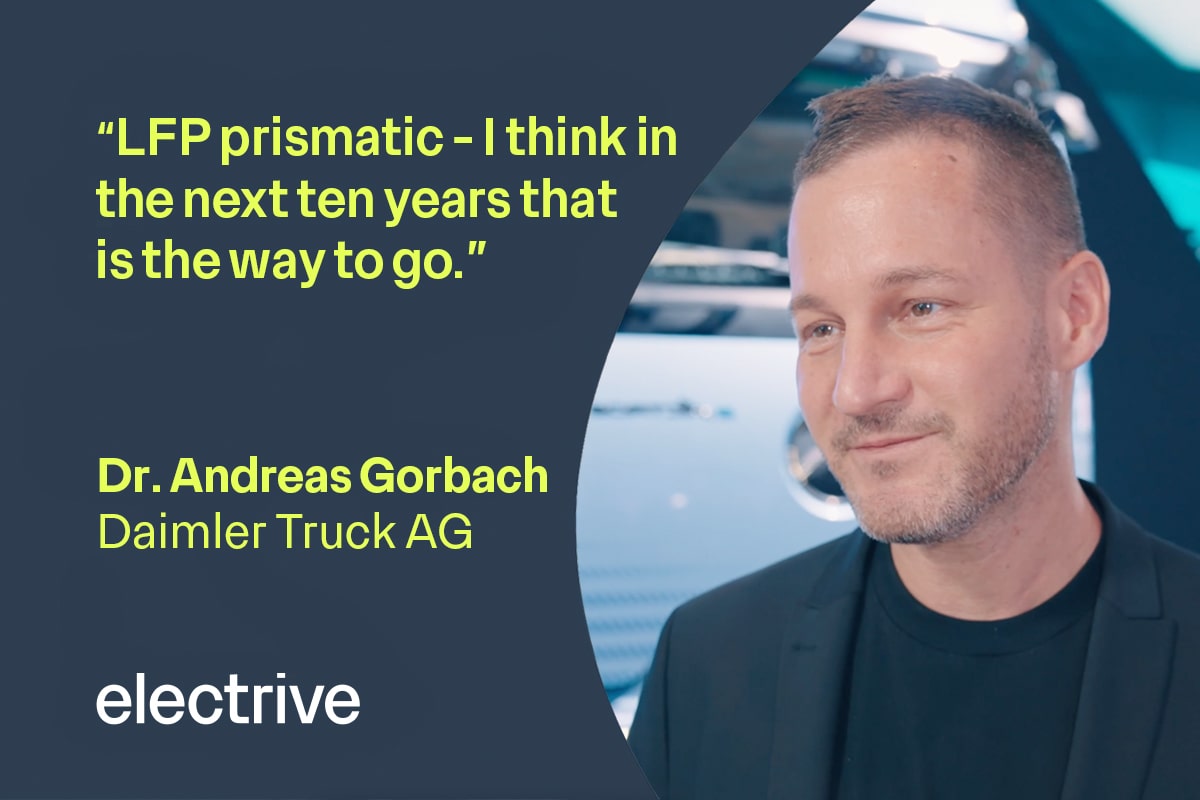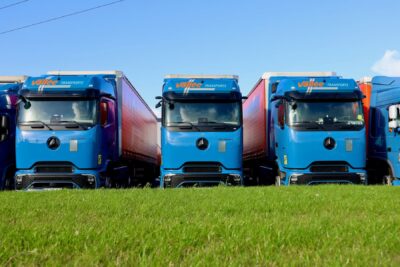Andreas Gorbach from Daimler Truck: Why the industry needs public infrastructure to succeed
When asked about the challenges in bringing the electric truck from concept to market, Gorbach described the process as “super rocky” and a “Herculean task.” He acknowledged that the decarbonisation of long-haul trucking represents one of the most significant challenges in the move towards sustainable mobility.
“People have been working day and night to make this happen,” Gorbach explained. “No surprise – if you would choose the biggest task in decarbonisation, long-haul trucking is where you want to look.”
Daimler’s new truck comes equipped with a 621-kilowatt-hour battery and offers a range of 500 kilometres. Competitors, such as Volvo and several Chinese manufacturers, are introducing trucks with even greater ranges. However, Gorbach was clear that in the trucking industry, more range does not always mean better performance.
A sweet spot for efficiency
“There is a sweet spot,” Gorbach said when asked if the industry would follow the same trajectory as passenger cars, constantly pushing for more range. He believes the balance between battery capacity, weight, and range is essential.
“You could double the installed battery capacity and have double the range, yet the amount of weight and cost you add to the truck comes to a point where it’s not the best for the transportation task,” Gorbach stated. He affirmed that Daimler’s new truck strikes that balance perfectly.
Despite fierce competition from Tesla and Chinese companies, Gorbach remains confident in Daimler’s strengths. “We don’t fear the competition, but we take them very seriously,” he noted. The focus, according to Gorbach, is on excelling in areas like weight, range, and efficiency, rather than being distracted by external competition.
Infrastructure remains a bottleneck
Daimler has made significant strides in battery technology. Early versions of their electric trucks were built on passenger car platforms using NMC pouch cells. However, the latest models feature a more robust, truck-specific solution using LFP prismatic batteries.
“With this truck here, we introduced a really ‘truckified’ platform, and that’s based on LFP prismatic. I think for the next 10 years, this is the way to go,” Gorbach explained.
As the conversation shifted to charging infrastructure, Gorbach addressed the growing importance of megawatt charging for long-haul trucks. While depot charging using CCS is suitable for short-haul vehicles, Gorbach stressed that long-haul trucks will require more powerful megawatt chargers to meet their energy needs.
“Without megawatt charging, it’s not going to happen. You need depot chargers, but you also need megawatt chargers for long-haul trucking,” Gorbach said. He also touched on the potential of hydrogen-powered trucks as part of the long-term decarbonisation solution, although he admitted that hydrogen presents a different set of challenges.
Daimler is expanding its electric vehicle portfolio, with ten trucks already in production, ranging from school buses to long-haul trucks. The company plans to continue this expansion with the inclusion of hydrogen-powered trucks by the end of the decade.
One of the major hurdles for the widespread adoption of electric trucks is cost. Many logistics and freight companies rely on government subsidies to make electric trucks economically viable. Gorbach explained that while the technology is advancing, the total cost of ownership (TCO) remains an issue, particularly without subsidies.
“There are three important factors that need to be multiplied: the product, TCO, and infrastructure,” he said. “The products are there, but infrastructure is the bottleneck of decarbonisation. Even with subsidies, this catalyst is not sufficient unless the infrastructure is there.”





0 Comments